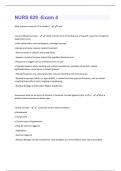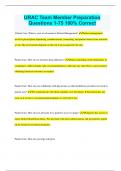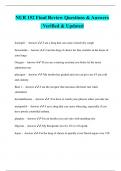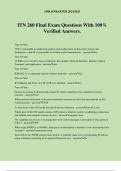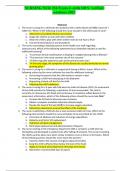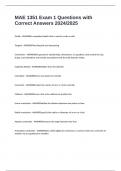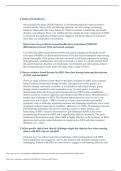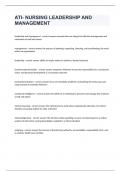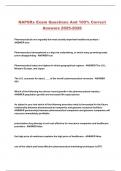Exam (elaborations)
NURS 629 -Exam 4 Questions and Answers Latest;(2024/2025)/ Graded A+
- Course
- Institution
Most common cause of UTI in children - E coli neural-mediated syncope - · Most common form of fainting and a frequent reason for emergency department visits. o Also called reflex, neurocardiogenic, vasovagal syncope o Benign and rarely requires medical treatment · More common in children and...
[Show more]
